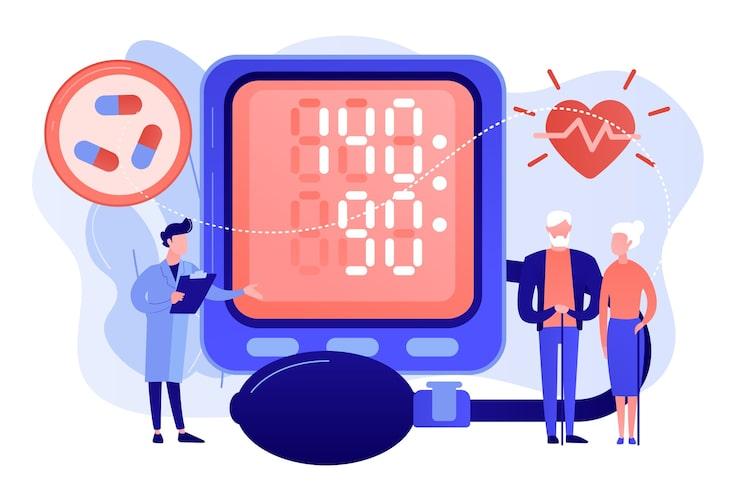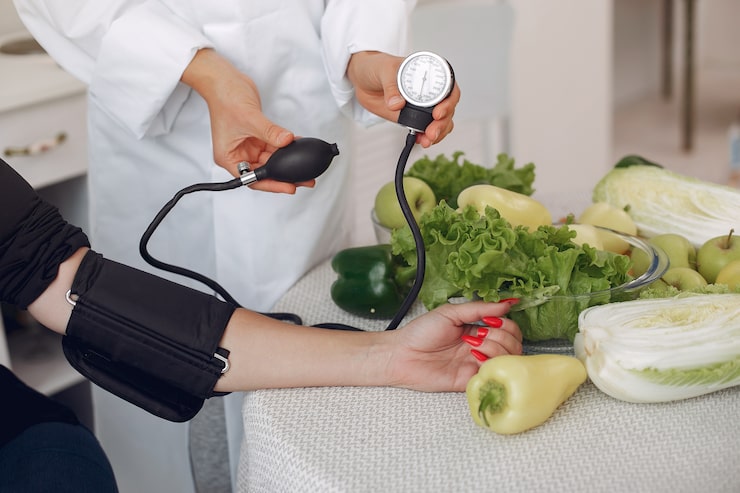
Hypertension awareness is vital for your health
Many people refer to high blood pressure, or hypertension, as the "silent killer." This is because it usually doesn't exhibit any signs of illness until it's too late, and it steadily hurts critical organs over time. High blood pressure is a key cause of heart disease, stroke, kidney failure, and death at a young age. It has an impact on millions of people all around the world.
It's crucial to grasp how high blood pressure affects the body in order to stop, find, and treat it efficiently. In this blog post, we'll speak about what high blood pressure is, what causes it, how it affects different organs over time, and how making changes to your lifestyle and getting treatment can help keep you healthy.
Blood pressure is the force of blood flowing against the walls of the arteries. There are two numbers that tell you how much it costs:
There are two main types:
There are many reasons that might make your blood pressure go up:
Some of the medical issues are diabetes, kidney disease, and sleep apnea.

Hypertension can cause more damage in old age
If you don't treat it, high blood pressure can steadily damage blood vessels and organs all over your body. Let's see how it affects vital systems.
1. The heart and blood vessels
2. Brain Stroke: High blood pressure is the leading cause of both ischemic strokes (clots in the brain) and hemorrhagic strokes (bleeding in the brain).
3. Kidneys Chronic Kidney Disease (CKD): High blood pressure damages the blood vessels in the kidneys, which makes it harder for them to get rid of waste.
4. Eyes Hypertensive Retinopathy: High blood pressure can damage the blood vessels in the retina, which can lead to visual problems or possibly blindness.
5. The metabolism and endocrine system
6. Arteries that are on the outside
Peripheral Artery Disease (PAD): Less blood supply to the arms and legs can make them hurt, numb, and more likely to get an infection or lose a limb.
One of the worst things about high blood pressure is that it doesn't exhibit any early indicators. A lot of people don't find out they have high blood pressure until it pains them a much. When symptoms do show up, they could be:
These symptoms usually only develop when blood pressure is relatively high, which is why it's crucial to get checked out often.
Doctors check someone's blood pressure several times and compare the results to see if they have excessive blood pressure. Doctors may also suggest: monitoring blood pressure while you are walking (for 24 hours).

Blood pressure can be maintained using a healthy diet
If they obtain the correct care, most people with high blood pressure can live whole, healthy lives. But not securing treatment makes it much more likely that you will have a heart attack, stroke, kidney failure, or another disease that could kill you.
To keep things under control for a long time, you need to check in on them regularly, follow the treatment plan, and adapt your way of life.
It's always better to stay well than to have to treat an illness. To minimize your risk of acquiring high blood pressure, eat a balanced diet from a young age.
High blood pressure may not exhibit any indicators, yet it can be very hazardous for your health. High blood pressure can damage practically every area of the body, including the heart, brain, kidneys, and eyes. The good news is that it can be avoided and dealt with if you make the right changes to your life, get medical help, and learn more. The personnel at Prakash Hospital in Noida can give you additional information.
By adopting good choices, checking our blood pressure often, and seeking treatment when we need it, we may protect ourselves from the harmful effects of this silent killer and live longer, healthier lives.
We offer expert care across key specialties, including Medicine, Cardiology, Orthopaedics, ENT, Gynaecology, and more—delivering trusted treatment under one roof.

Dr. Megha
Prakash Hospital Pvt. Ltd. is a 100 bedded NABH NABL accredited multispecialty hospital along with a center of trauma and orthopedics. We are in the service of society since 2001.
OUR SPECIALITIES
Contact Us
D – 12A, 12B, Sector-33, G. B. Nagar, Noida, Uttar Pradesh 201301
+91-8826000033

© 2026 All rights reserved.
Designed and Developed by Zarle Infotech